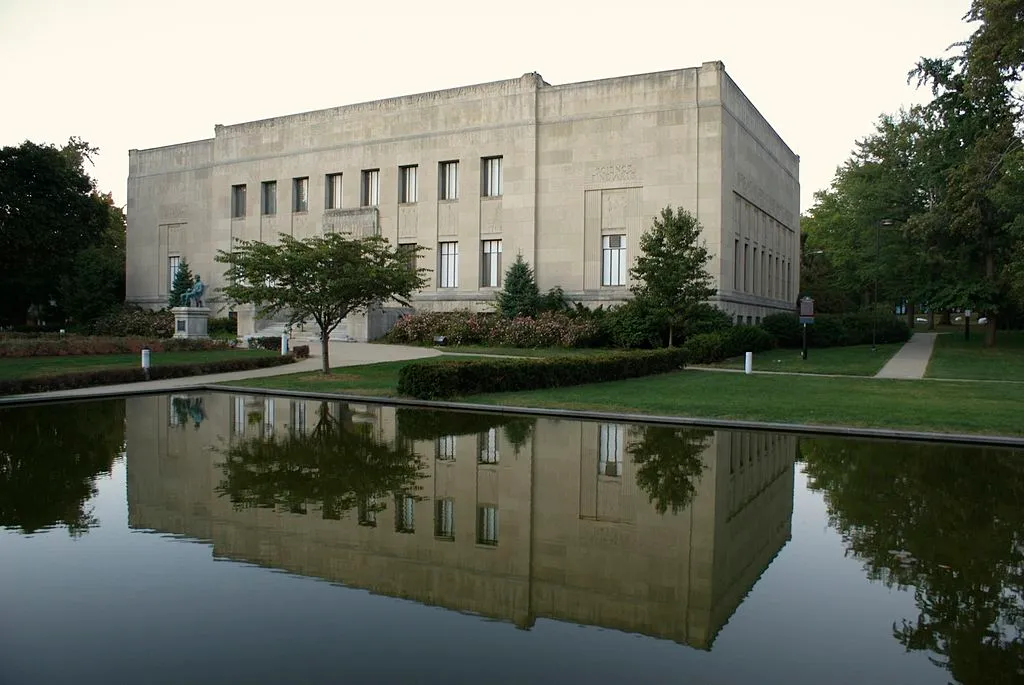
Jeffrey from Dunmore, PA via Wikimedia Commons under CC BY-SA 2.0
Missing art works by Andy Warhol and Jackson Pollock that were stolen as part of a crime ring spanning 20 local museums may still be intact, despite many of the other items have been melted down or burned.
The update came a week after the US Attorney’s office for the Middle District of Pennsylvania announced that nine people had finally been charged with conspiring to break into 20 museums and other institutions to steal millions in art works, sports memorabilia, antique firearms, and other items. The thefts took place over a 20-year span.
Federal prosecutors recently informed officials at the Everhart Museum in Scranton, Pennsylvania, that one of the defendants may have seen Warhol’s screen print La Grande Passion within the last two to three years. However, interim executive director Charles Barber told The Times-Tribune that investigators were unable to confirm whether that statement was true or not.
On June 15, the US attorney’s office announced that four of the nine people had been indicted by a federal grand jury for conspiracy to commit theft of major artwork, concealment or disposal of objects of cultural heritage, and interstate transportation of stolen property. The four men, Nicholas Dombek, Damien Boland, Alfred Atsus, and Joseph Atsus, are all in their 40s and 50s, and are all from various parts of Pennsylvania.
The Associated Press reported that eight of the nine men have already turned themselves in. Dombek, who did not turn himself in, has also been charged with interstate transportation of stolen property.
In addition to Warhol’s 1984 screenprint Le Grande Passion, the stolen objects included Pollock’s vibrant blue 1949 painting Springs Winter also taken in 2005 from the Everhart Museum; the painting Upper Hudson by Jasper Cropsey, taken in 2011 from the Ringwood Manor in Ringwood, New Jersey; more than $1 million in memorabilia from the Yogi Berra Museum, including nine World Series rings; six championship belts from the International Boxing Hall of Fame; more than 30 golf and horse racing trophies; a Tiffany lamp; $400,000 in gold nuggets; and four firearms worth a combined $1 million.
According to prosecutors, the nine suspects had evaded capture and targeted mostly small museums between 1999 to 2019 in Pennsylvania, New Jersey, New York, Massachusetts, and North Dakota. They even returned to steal from the Space Farms: Zoo & Museum, first in 2006 and again in 2018.
Unfortunately, the odds of recovery for many of the stolen items are non-existent. The indictment alleges that Dombek burned Upper Hudson, estimated to be worth $500,000, to avoid the possibility of it being used as evidence against the members of the crime ring.
The indictment also alleges that after the men transported the memorabilia back to Northeastern Pennsylvania, often to Dombek’s residence, items like the championship rings were melted down into discs or bars and sold to individuals in New York City.
On June 26, Barber told ARTnews, “After all these years, we are heartened by the identification, capture, and (hopeful) prosecution of the nine defendants. But we are deeply saddened by the evident destruction and loss of many of the pieces. Items of huge historic importance were melted down for mere precious metal value. Pennys on the dollar of their value to our culture and community. The Everhart is dedicated to the preservation and protection of precious art and historical items. These thieves have proven to be the antithesis of that philosophy by their wonton destructions.”
In 2006, the New York Times also reported that Springs Winter not insured, was never authenticated, and was not included in a catalogue raisonné featuring all of Pollock’s paintings.
Documents filed in federal court also show that after the thefts, prosecutors think the stolen items went to “a residence owned by Joseph Atsus and Alfred Atsus in Union, New Jersey.” The indictment also shows that after the burglary at the Everhart Museum, four people used a payphone to call a hotline and ask about a reward.
The Times-Tribune reported that property records identified a residence owned by the Atsus brothers in Union County, purchased for $1 from the estate of the brothers’ deceased father in 2003. A reporter visited the home and found only “a horde of furniture and old appliances.”


